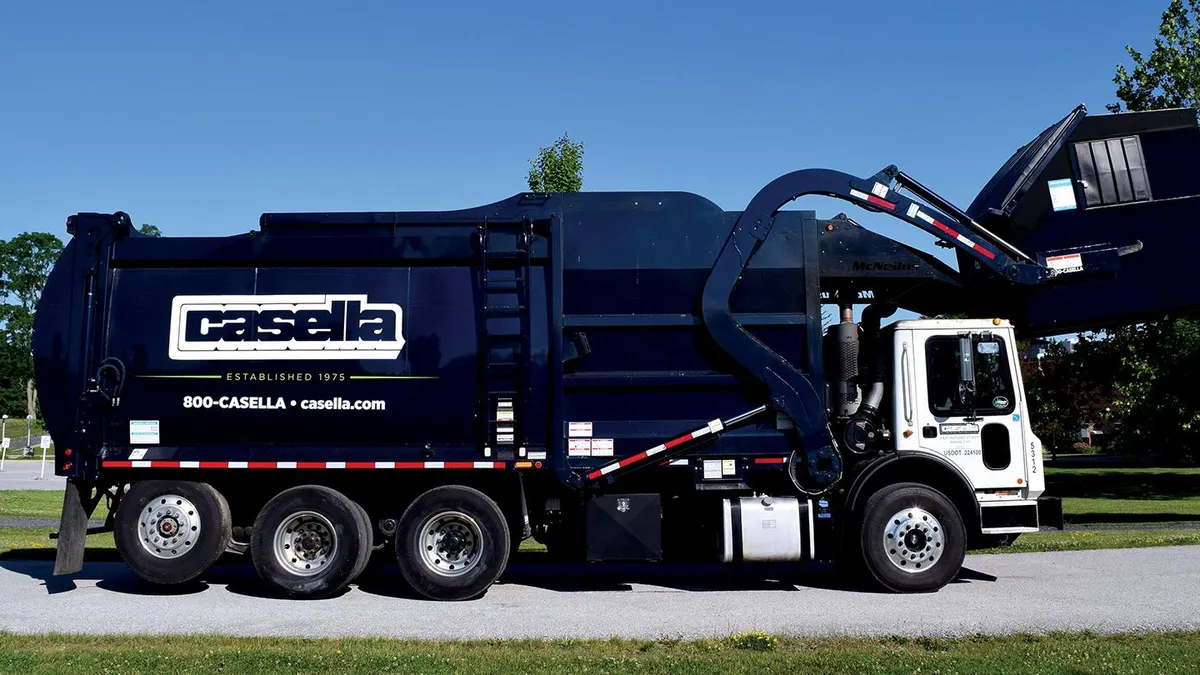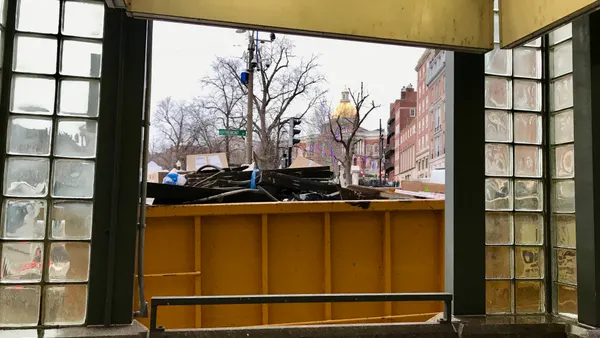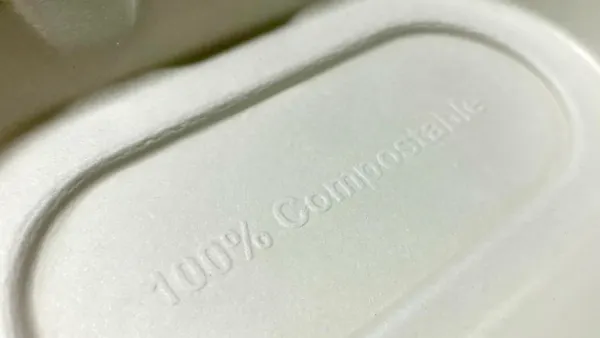2017 Earnings
| Revenue | $599.3M |
| YoY Change | 6.1%▲ |
Q4 Earnings
| Revenue | $151.2M |
| YoY Change | 5.2%▲ |
| Operating Income from Recycling | $1.9M▼ |
Dive Brief:
- Casella Waste Systems expects "historically low levels" for commodity prices will continue into 2018. Its sustainability/recycling adjustment (SRA) fee is working, but that doesn't account for older contracts with price caps. "As the cost structure has dramatically changed in the recycling business a number of those contracts were not flexible enough to allow us to change that threshold," said CFO Ned Coletta during the earnings call. "So almost all of that headwind year-over-year is not due to our risk programs that are working, it's due to legacy contracts that don't let us off take that risk."
- Otherwise, business is good and CEO John Casella expects to grow free cash flow 10-15% per year, "given our size, our nimbleness and the range of opportunities in our pipeline." He estimated the Northeast had at least $500 million in acquisition opportunity, mainly tuck-ins of various sizes, and promised the company would be "opportunistic."
- While Casella won't see the same immediate tax cut benefit as some competitors due to net operating losses, the company did have insight on that front. "Because of U.S. Tax Reform, we revalued our federal deferred taxes in valuation allowance in the fourth quarter, resulting in a $15.3 million tax benefit for fiscal year 2017. This includes a deferred tax benefit for reducing our federal taxes from 35% to 21% and a $12.8 benefit for 80% of the indefinite like deferred tax liabilities which became available as a source of future taxable income," said Coletta.
Dive Insight:
In the last of this round of quarterly calls, Casella showed similar trends to many of the larger publicly traded companies. Solid waste business was good in 2017 — up 7.4% — and will keep growing in 2018. Casella is now projecting annual revenue of $618-628 million. Recycling revenues are expected to be tough, but they only comprised 10.4% of total revenue for 2017 and can be offset by growth in waste volume and pricing.
Even with the upcoming closure of Casella's Southbridge Landfill in Massachusetts, the company is confident it can make up for that volume in other states at higher price points. The recent acquisition of Complete Disposal in was highlighted as one example of new disposal and transfer capacity, including rail capabilities for exporting.
The company has set a goal of growing revenues by $20-40 million per year through acquisition or development over the next three years. So far, including Complete, it has already picked up $18 million of acquired revenues during the past two months.
Other areas receiving attention during the call were new plans to improve employee retention, led by a recently hired vice president of human resources, and a recent companywide technology upgrade that was projected to be "a game changer."
The recycling situation was less optimistic, following an 80% drop in mixed paper pricing from July 2017 to Jan. 2018. Coupled with slower processing speeds and higher labor costs, that equation gets worse.
Casella's SRA fee will help offset some of this, but so far it has been taking time to catch up.
"Our risk programs generally work on a trailing one-month basis. So with rapidly falling commodity prices from September through December, and higher processing cost as we slowed down the processing lines to improve quality, our risk mitigation programs have under-recovered during this period," said John Casella.
The company has budgeted around $2 million to upgrade its recycling infrastructure, but some factors are also out of its control.
Unlike the bales of mixed paper and other commodities that are piling up behind its Boston MRF, much of the glass Casella is handling in the area will now be sent for disposal due to a recent market collapse in the region.










